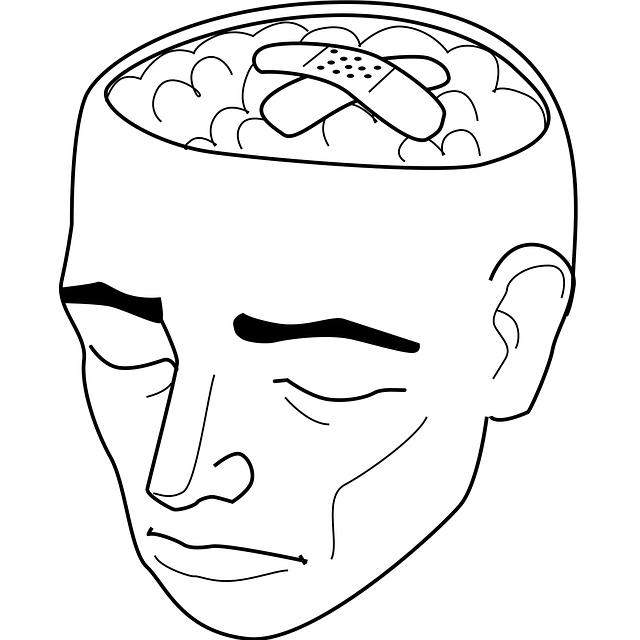Broomfield OCD therapy focuses on empowering individuals through coping skills, including stress management, relaxation, cognitive reframing, and problem-solving. By integrating these techniques into daily routines, patients gain control over anxiety, reduce OCD's impact, and build resilience against future stressors without resorting to compulsions. This holistic approach, supported by public awareness campaigns, promotes effective symptom management and overall well-being for individuals with Broomfield Obsessive Compulsive Disorder (OCD).
Coping skills development is a vital aspect of treating conditions like Broomfield Obsessive Compulsive Disorder (OCD). This article explores the significance and role of coping strategies in OCD therapy, offering a comprehensive guide to understanding and implementing effective mechanisms. We delve into specific techniques, providing insights on integrating these skills seamlessly into daily routines inspired by the Broomfield OCD approach. By equipping individuals with robust coping tools, this strategy enhances their ability to manage symptoms and improve overall well-being.
- Understanding Coping Skills and Their Role in OCD Therapy
- Strategies for Developing Effective Coping Mechanisms
- Integrating Coping Skills into Everyday Life: A Broomfield OCD Approach
Understanding Coping Skills and Their Role in OCD Therapy

Coping skills are a crucial aspect of treating Obsessive-Compulsive Disorder (OCD), as defined by Broomfield OCD Therapy professionals. They play a pivotal role in helping individuals manage their symptoms and improve overall mental health. The primary goal is to equip people with effective strategies to cope with the overwhelming anxiety associated with OCD, rather than simply eliminating obsessions or compulsions. By learning these skills, patients can gain better control over their emotional responses, thereby reducing the impact of OCD on their daily lives.
In Broomfield OCD Therapy, coping mechanisms are tailored to each individual’s unique needs and challenges. They include techniques for stress management, relaxation exercises, cognitive reframing, and problem-solving strategies. These skills not only provide short-term anxiety relief but also foster long-term mood management. Moreover, they enhance resilience, enabling individuals to navigate life’s stressors without resorting to compulsive behaviors, thus promoting a holistic approach to mental health policy analysis and advocacy within the context of OCD treatment.
Strategies for Developing Effective Coping Mechanisms

Developing effective coping mechanisms is a crucial aspect of mental well-being, especially for individuals dealing with conditions like Broomfield Obsessive Compulsive Disorder (OCD). OCD therapy often emphasizes the importance of learning and implementing healthy coping strategies to manage symptoms and improve quality of life. One key approach involves integrating self-care practices into daily routines. This can include activities such as mindfulness meditation, regular exercise, adequate sleep hygiene, and engaging in hobbies that foster relaxation and joy. By prioritizing self-care, individuals can enhance their ability to navigate stressful situations without resorting to compulsive behaviors.
Furthermore, risk management planning is an essential tool for mental health professionals. They can guide clients in identifying triggers, anticipating potential crises, and creating structured plans to respond effectively. This proactive approach empowers individuals to take control of their mental health, reducing the impact of distressing symptoms. Public awareness campaigns development can also play a significant role in promoting healthy coping skills by educating communities about OCD and other mental health disorders, fostering understanding, and encouraging early intervention and support-seeking behaviors.
Integrating Coping Skills into Everyday Life: A Broomfield OCD Approach

Integrating coping skills into daily routines is a key element of Broomfield Obsessive Compulsive Disorder (OCD) therapy. This approach focuses on empowering individuals to manage their symptoms effectively and enhance their overall well-being. By learning and practicing specific techniques, those struggling with OCD can develop a sense of control and reduce the impact of intrusive thoughts and repetitive behaviors.
The strategy involves adapting various coping mechanisms to fit everyday life situations. For instance, mindfulness exercises and cognitive reframing techniques help individuals recognize and challenge obsessive thoughts, fostering a greater sense of calm. Additionally, engaging in activities that boost confidence and promote self-care can significantly contribute to anxiety relief. Mental illness stigma reduction efforts play a crucial role, as integrating these skills into one’s routine helps build resilience and encourages those affected to seek support without fear of judgment.
Coping skills development is a pivotal aspect of treating Broomfield Obsessive Compulsive Disorder (OCD) as it equips individuals with effective mechanisms to navigate life’s challenges. By understanding the role of coping strategies in OCD therapy and integrating them into daily routines, as exemplified by the Broomfield approach, people can enhance their mental resilience and lead more fulfilling lives. These skills empower individuals to manage intrusive thoughts and behaviors associated with OCD, fostering a greater sense of control and overall well-being.












